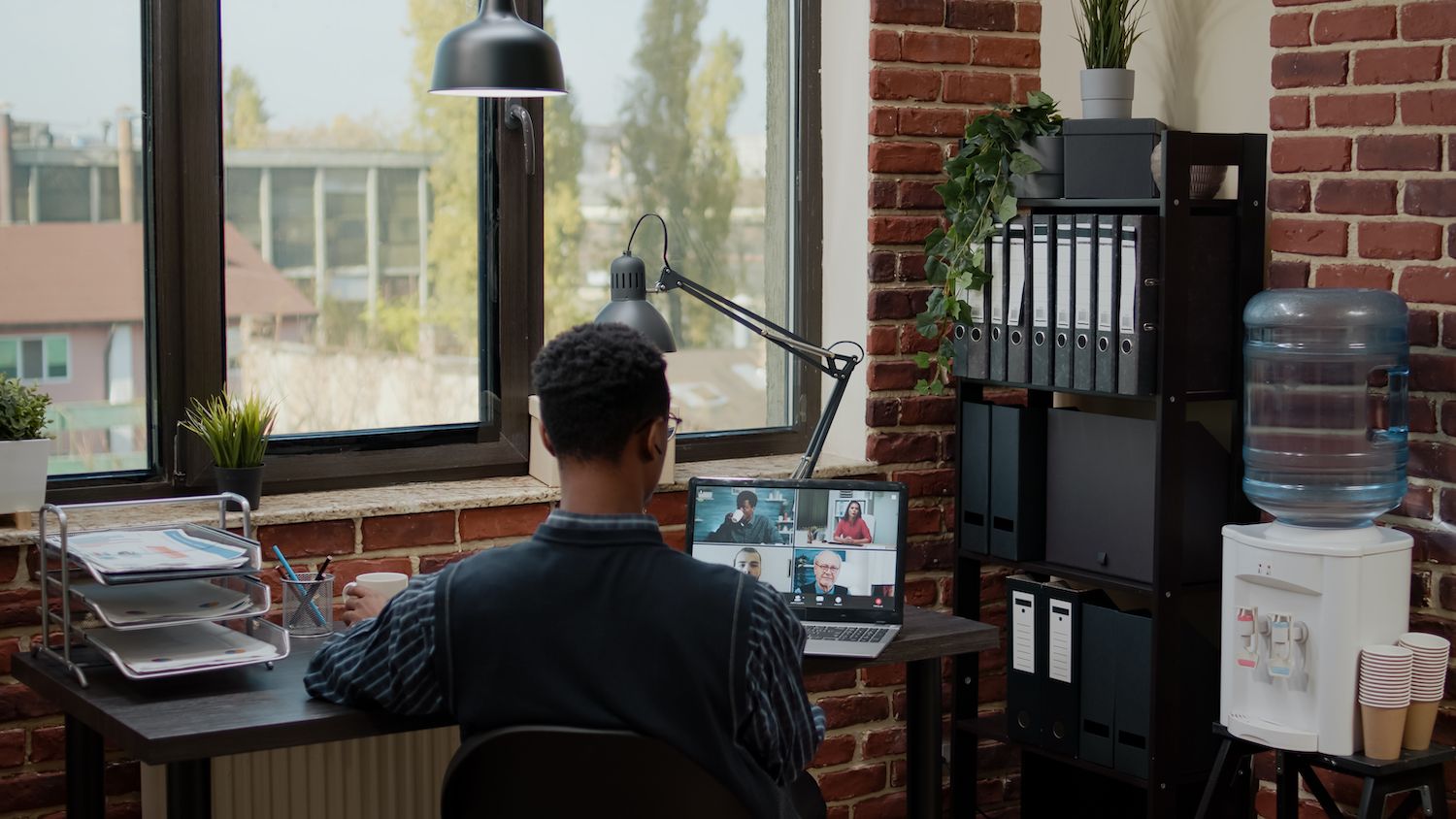Terms

"I was raised and born within Southern Vermont," starts Max Mackson of Maximilian Mackson, LLC. I attended homeschool until high school, which provided me with the chance to use the computer. I learned HTML, CSS, and JavaScript, the languages of web development, and continued to tinker with side initiatives."
As a young adult, Max went into a theater program. "I was taught how to conduct myself professionally; we had a director who was demanding and I'm grateful we had him because he taught me to be punctual and ensure that you're prepared," he adds. Max's first IT job came about at the time of this interview. "Between my sophomore and junior year at high school, I worked for a club that was located in the town. I worked there two times a week updating their website and it was God awful! They were using some crazy third-party system; it took half an hour to do tasks that would have been done with WordPress would take two minutes," he explains.
Meeting people face-to-face when fixing the tech certainly helped He continues. "I'm focused on personal connections. I get a lot of value out of relationships. During the season in the club all was on high constantly. Therefore, if the printer at the kitchen failed and I needed to get in there. It was hot and busy everyone was moving all around me. We were 'in the zone' right there!"
Max enjoyed seeing first-hand his effects from his work and attempting to address the difficult relationship we have with technology at times. "When I was working with other people and I'd say to them "Okay, I've just uploaded an update on this machine' and I would get to determine if it helped them or if they became confused. I could see these different sides and learn how people respond to technology. A lot of IT individuals will affirm, "Oh, this is how things work now; this is an update' and I find that irritating. I enjoy working with other people."
Max discovered that having a good grasp in technology could help people's lives. In the days of country clubs when he was a teenager, his resentment for printers began "They just never seem to perform when you need them to work!" he smiles. Much of his time was spent fixing printing equipment; and working with computers gave him an understanding of the architecture of systems "I eventually had to rework each of their systems throughout time. I continue to jobs for them," he adds.
Singing by himself
As for a formal training, Max went to Champlain College in the northern part of Vermont but learned something other that the traditional course. "I was among twelve information technology majors and it was hilarious, because as I was in school it was decided by the school that they were going to sunset this particular major! We were taken into a room and said"Hey guys, and you'll still be able to complete your degree. But we're not going to offer your major after this year'!"
Max started working in audio-visual production because of his background in theater. "That required more fixing of technology because all the classrooms depended on having computers, projectors, and projection screen" he continues. "When things went wrong it was when we'd walk through these classrooms full of many people, and they would all stare at us, and we'd be seated at a table to switch out the projector's bulb!"
"I attended college for just two years. I left because I found it to be very slow. The web world moves at such a rapid pace that at the point you've finished up learning something in college, it's already outdated on the market. For the professors having to learn and to push that out to the students, it can take a while," Max adds.
Naturally, the rate of innovation hasn't slowed in the least - actually, it's increased and the speed and purpose of higher education eventually caused Max to create his own business. One of the reasons that Max left was that his vision for his future didn't match the vision of his school: "They liked to say they got 99percent of their students a job right out of college - that's awesome. However, they are extremely focused on making sure everyone is able to enter the working environment. I love working with individuals, but not in that way; it was not for me."
Thus, Max decided to go on his own , and set off looking to find his first client. He'd just attended the course, and the guy running it had asked for reviews. Max recalls: "I sent one in with the intention of practicing my writing skills. However, on the back, I put 'PS - If my skills can ever help you, let me know'. And he replied, 'Well, what can you be doing?'"
Max went through the website and wrote up a bulleted list of improvements: "No BS, just straight to the point" and Max received a simple response: "Text me" along with a number. "That was how I got the job I wanted. To this day, he's an excellent client!" Max smiles.
Services and Projects
"You have all these different pieces of software that power your business, but they're not communicating with each other. I'm the person who understands that software talking perfectly," Max says. He explains that this creates a more powerful single system that is able to accelerate business growth while reducing time and energy. "I am a systems architect and integrator. Most people even my parents simply call me the IT guy!" he jokes.
Max says that a typical user's tech stack may have 100 pieces of software, all in separate silos. "You must bring all these things together so that they speak to each and each. I began working with a couple of clients in designing websites, and I got into integration specifically in April 2021, as one of my customers wanted to create a membership-based only community."
Max was working with that client, an influencer in the field of health and wellness and an evangelist for a few months and things were going smoothly. He hadn't had much expertise with memberships, however the fact that he had anecdotally known exactly what the issues could be. "I found myself doing research on a number of different membership software companies. There is a way for me to go about looking up diverse lists of what's the top software. I'll correlate them."
Max picks software to provide the best user experience, both from an admin side as well as a user's perspective, to save customer support time for the longer term. The simplicity of the software is vital. "I am able to work in a more complex environment but I also understand when something gets to the point where it's not usable to everyday citizens. They want to purchase somethingand want to get access to it. It's normal: whenever someone would sign into the website, I'd aware of the expression at their faces. I'd start explaining it and their eyes would be glazed over!"
Integration styles and the future
"Integrations can be deceptively complex," Max muses. "They have different types and different levels. For a native integration, like with Mailchimp, just click a couple of buttons, and it's approved, then you're ready to go. It's possible to create low-code or no-code integrations like Zapier's Zaps; and totally custom ground-up integrations where you write everything in beginning to finish."
"Generally I am in the zero-to- low-code sphere, because it is generally effective for my customers. However, for one specific integration, my client was looking to really go into the integration. They needed to include the functionality of native integration however, they wanted to do it through Zapier. I had to use a dozen different Zaps to get the whole thing wired up and to get it to feel native and I still needed to include some code that was custom."
What made that particular initiative so interesting was the sheer volume of interactions. "The initial day that we started it, we put the task of completing 50,000 it, which is incredible! I needed to improve it significantly to make sense. It was eventually able to be brought down to just 5000 or less tasks per day. That's pretty high."
He adds: "That was the first occasion I worked on a project of this scale with Zapier. I've worked on a bunch of projects over the years including some that focused on design, and others that were more technical, however, this was my favorite."
This larger scale of development is what will drive Max's next steps. Max says that: "Longer term, I would like to create software for business." Max adds he thinks about software a lot because it's such an integral part of his career and because so much software has been getting worse with time. "It gets slow and bloated; it's not user-friendly anymore. The software is constantly rolling out UI updates that just make it worse. As of now many people are expecting software to fail!"
He explains that he wants to provide a more pleasant user experience that is simpler and more intuitive for the end-user. "It's still in the design stages but I've got some concepts. It's probably about six months away, because I tend to work solo most often. I do not like working for an agency. They hand the project over to a new, unnamed developer who will then lock inside the closet! I don't like that environment and I tend to be a team player one on one."
Max has his thoughts on the latest news with--and gives preferential treatment to--subscribers of his list (which is affectionately referred to by the name of "#MilianFam"). In addition, as an exclusive benefit for new subscribers who join from the list, Max has designed an exclusive bonus course which, as of the date of posting, has not been previously offered elsewhere, for whatever price.
